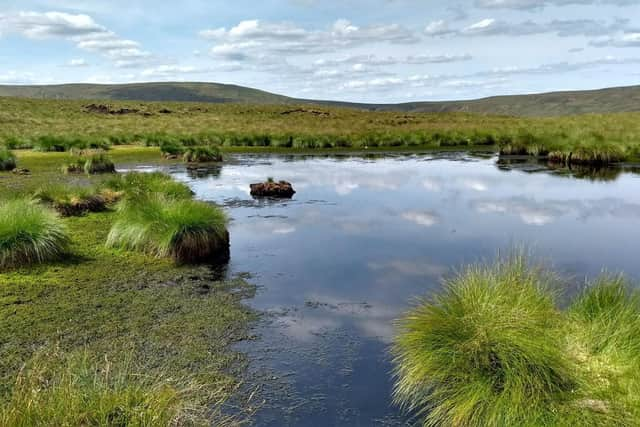Yorkshire’s peatland needs protecting, not burning for the shooting season - Olivia Blake
And this wasn’t even during the infamous heatwave on July 18-19 when fires broke out all around the country. The smoke comes from the deliberate burning of the heather that grows on the upland bogs. The practice is intended to create the ideal – but artificial – habitat for grouse so that there will be enough of the birds for shooting season.
But in creating these unnatural habitats to increase grouse numbers for shooting the landscape is changed, with the spongy peatland creating plants replaced by a monoculture of heather – destroying a precious ecology that some have rightly called ‘‘England’s rainforests’’. This wet and boggy landscape covers 15 per cent of our country and together holds more carbon than all the forests in the UK, France and Germany put together.
Advertisement
Hide AdAdvertisement
Hide AdThe results are disastrous for nature and for the climate emergency. Peatlands are a build-up of thousands of years of dead vegetation which store gigantic quantities of carbon. Over thousands of years, these peatlands have locked up carbon in the peat. Healthy peatlands can help us to tackle climate change and reduce the occurrence and severity of natural disasters like those we have seen this summer.


However, shockingly, only around one in 10 peat bogs are not in good condition, with regular burning undertaken by land managers being a major cause of their poor state. Degraded peatlands leak carbon into the water and air and emit the same amount as the UK’s entire aviation industry produces each year.
Last year, the Government passed legislation to stop burning from taking place on deep peat, more than 40cm deep, inside protected sites without a licence. However it’s clear that this law does not go far enough, continuing to allow burning to take place on up to 60 per cent of England’s peatlands. Recently, the Royal Society for the Protection of Birds (RSPB) launched a new app allowing people to report burns they spot in our uplands.
Between October 2021 and May 2022, members of the public recorded a shocking 272 burns of varying sizes across the country, with 86 reported burns on peat deeper than 40cm and 80 per cent of all reported burns took place on protected sites. The data they collected paints a clear picture - despite the new restrictions, lots of burning is still happening, with some of it apparently illegal.
Advertisement
Hide AdAdvertisement
Hide AdSome say that we need “controlled burns” to prevent a build up of vegetation which could result in hot and damaging fires. The truth is that the heavy fuel loads that give rise to these fires are often a result of rotational burning – after it burns, heather grows back in greater abundance, changing the makeup of the landscape and preventing the moist, peatland creating plants from growing.
We need to break that cycle. A far better preventive measure would be to restore the moors, re-wetting them and replanting with the water-soaked sphagnum mosses that should grow there. Tackling the burns and restoring these environments – which make us the envy of the world – should be at the centre of plans to meet the urgent challenge of the climate and nature emergencies, but the Government is failing to act.
Having been both Shadow Minister for Climate Change and also Shadow Minister for Nature, Water and Flooding, it is clear to me how interlinked these issues are.
We will not tackle climate change without recovering nature, and nature will continually be under threat in a warming climate. Peatland restoration helps both causes symbiotically.
Advertisement
Hide AdAdvertisement
Hide AdWhen people visit the countryside in my constituency, rather than smoke-fogged skies and dried out uplands, they should look across vibrant multi-coloured peat bogs, teaming with life. There’s no time to wait. The twin nature and climate emergencies demand that we act now to protect what we still have and restore what we have lost.
That means a full ban on burning on peatland, a properly resourced regime for enforcing the law, and a serious strategy for restoring these habitats. Replenishing that savings account will take a while, so we need a ban on burning to level out the balance sheet. England’s rainforests are too precious for anything less.
Olivia Blake is MP for Sheffield Hallam and former Shadow Minister for Climate Change.